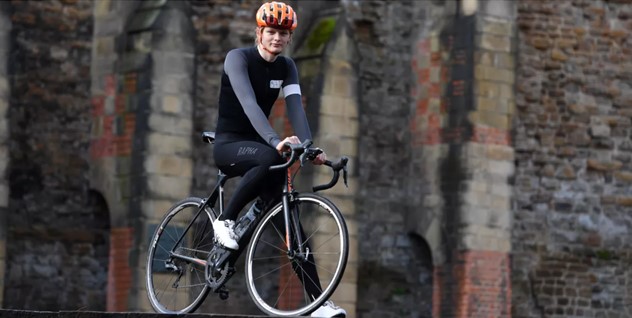Transgender Sport Expert Becky Thompson Discusses Emily Bridges Ban and Controversial Boris Johnson Comments.

Following the UCI’s recent decision, to rule trans-woman cyclist Emily Bridges as illegible to compete, the strongly debated topic of transgender participation in sport has once again resurfaced.
In what would have been her first elite women’s race, the cycling governing body has excluded Bridges from the event. Bridges has been receiving a great deal of support, with UK Sport stating that she would receive funding if this decision is revoked.
Boris Johnson has recently contributed to the complex conversation of transgender participation in sport, by making comments that even he regarded as “controversial”.
“I don’t think biological males should be competing in female sporting events. Maybe that’s a controversial thing to say, but it just seems to me to be sensible.”
“If that puts me in conflict with some others, then we have got to work it all out. It doesn’t mean I’m not immensely sympathetic to people who want to change gender, to transition, and it’s vital we give people the maximum love and support in making those decisions.”
“These are complex issues and they can’t be solved with one swift, easy piece of legislation. It takes a lot of thought to get this right.”
Becky Thompson is an expert on transgender participation in sport, having led CNN’s reporting on transgender athletes at the Tokyo Olympics, and she is most recently working with the Telegraph on their transgender coverage. Thompson presented her opinion on the Prime Minister’s comments.

“I found it a little bit frustrating, because I think that there is definitely a conversation to be had about trans inclusion in sport. And there’s definitely room to discuss what levels of inclusion we need, and what safety there needs to be, and what measures, but there isn’t a lot of room for being transphobic. And unfortunately, his remarks do come across as transphobic.”
“I think when people come to understand more of actually the trans experience, it becomes easier to understand inclusion in sport. And unfortunately, what we’re seeing right now, is a lot of people are pushing anti-trans agendas through sport, and they’re using sport as a way to exclude trans people from the wider society and wider communities, especially in the UK. And you’ve seen that with comments that Boris Johnson is making.”
Last year saw the first transgender athletes at the Olympic Games, as New Zealand weightlifter Laurel Hubbard, Canadian footballer Quinn, and American skateboarder Alana Smith all performed in Tokyo. Thompson was at the forefront when covering the ground breaking athletes, and understands how difficult it would have been for Bridges to be ruled out of competing.
“The biggest thing with the Emily Bridges case is the lack of transparency provided by the governing body. I think, personally, her inclusion should have probably gone ahead, based on it being revoked so late in the process, because at that point, she’s fully trained for the event. So, to have it taken away, is quite difficult on any athlete.”
“The biggest issue with that was the lack of transparency, and the governing bodies did decide to revoke her admission to the event with very little clarification as to why. Any athlete, whether they’re trans or not, really deserves a lot of transparency and decision making.”
“There’s definite evidence that sport is incredibly beneficial for people’s mental health.
And the reality is for the trans community, when they go through hormone replacement therapy, that therapy takes a massive hit on your mental health and on your body. So having access to sport can be a really tremendous thing.”
Last month, trans-woman swimmer Lia Thomas was the target of protests from women’s sport activism groups, during her NCAA Championship victories. Thompson discussed her understanding of these groups, and what she believes is the best way for women’s sport to collectively move forward.
“From my perspective, as a female, I think it’s difficult to see some of those discussions going on. I think that it’s difficult, because as women we have fought for so much inclusion in sport in our own right, so I can understand where people are coming from in that perspective. But I don’t think that it’s right to leave trans woman out of that competition.”
“I think that the real next step in this is finding more ways to bring cis women and trans woman together in these discussions. Right now, we’re seeing two many times where on both sides of the conversation, one group is a minority than the other.”
“Either conversation is dominated by cis women or it’s dominated by trans women. I think we need to find a way to bring the two sides together, to have a conversation, to just get to know each other as people first, and then discuss how we can have each other participate.”
“If we start from a point of inclusion rather than a point of exclusion, we also give ourselves a better chance at finding the right solution.”